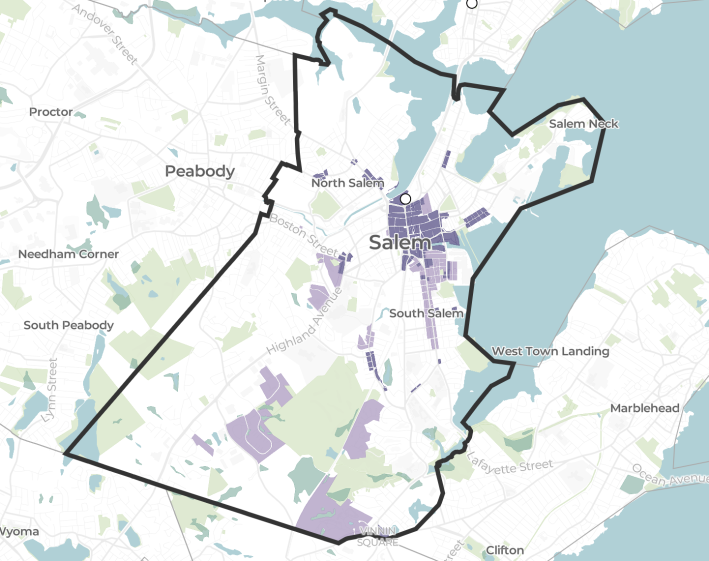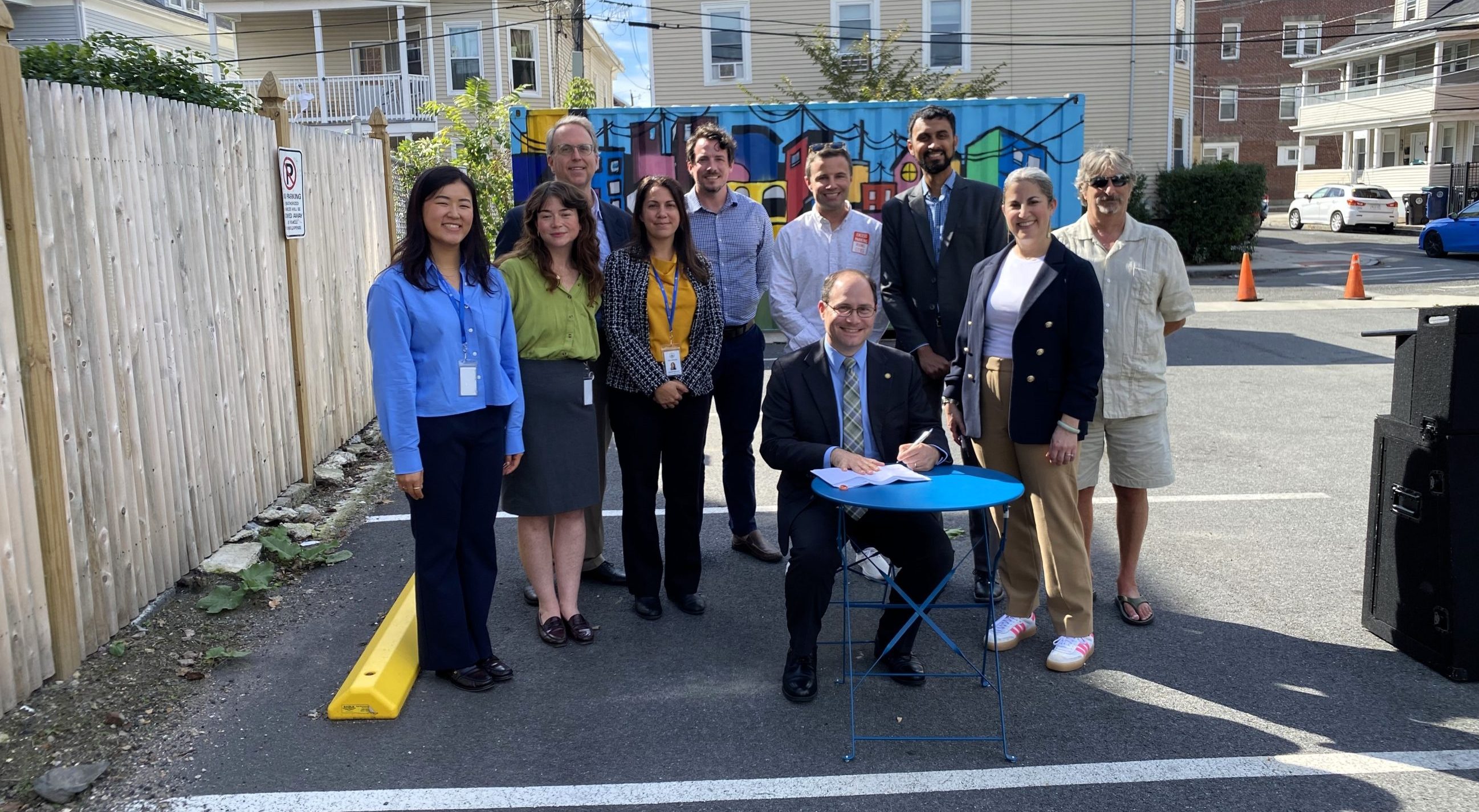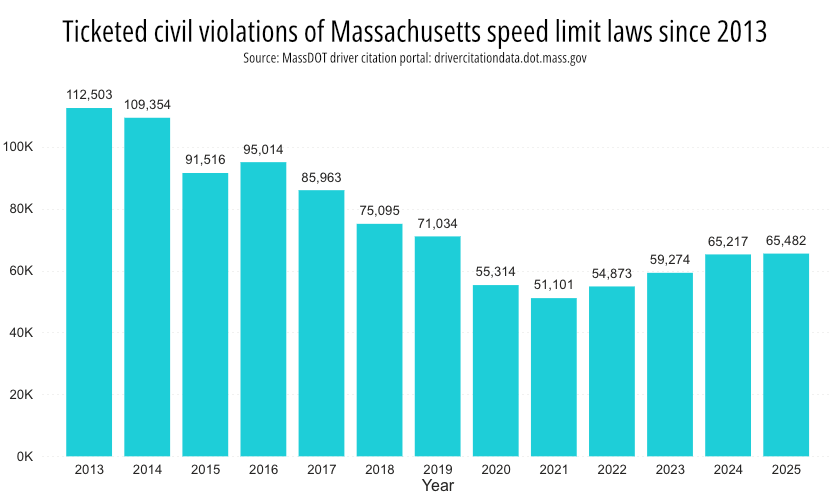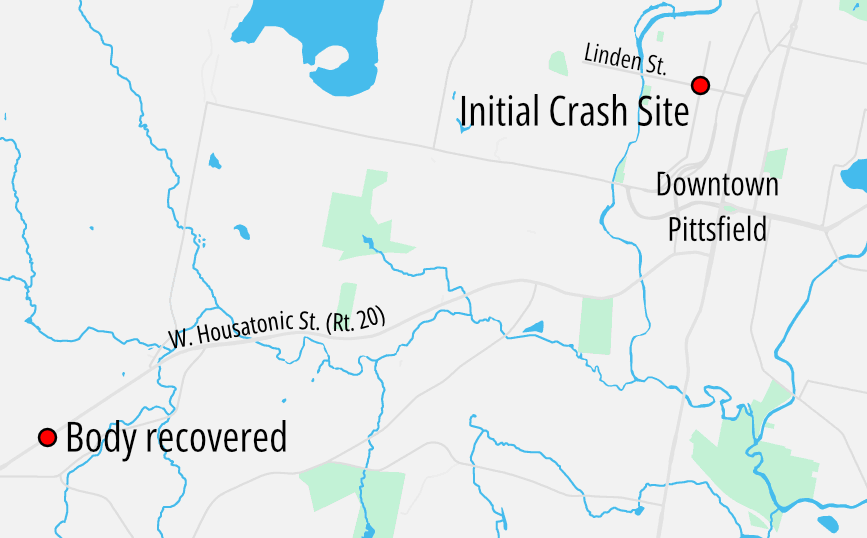Editor's note: the following is an edited version of a City of Salem press release.
On Monday, Salem city officials formally adopted a new ordinance that eliminates minimum off-street parking requirements for new multifamily housing developments throughout the city.
The Salem City Council approved the amendments to the city's zoning code in a 10-1 vote at its meeting last Thursday (with the lone opposition vote coming from Ward 1 City Councilor Cynthia Jerzylo) following a unanimous recommendation from the city's Planning Board.
On Monday, Salem Mayor Dominick Pangallo signed the Ordinance into law in an empty parking space, alongside City Councilors and staff, members of the Affordable Housing Trust Fund Board and Planning Board, and representatives from the Metropolitan Area Planning Council (MAPC).
The reforms eliminate rules dating to 1969 that had required developers to build at least 1.5 parking spaces for every new apartment in larger multifamily housing developments, with limited exceptions.
The new ordinance only eliminates parking requirements for residential developments with three or more homes. Large portions of the city remain zoned exclusively for expensive single-family homes, and the new parking rules will not apply in those neighborhoods.

As part of its "Perfect Fit" research into parking rules around the region, MAPC had investigated parking lots at several multifamily developments around Salem, and found that, on average, 38 percent of those parking spaces were vacant at the time of their study.
MAPC estimated that households living in Salem's multifamily properties typically use only 0.85 parking spaces per unit. That demand was almost certainly inflated by the zoning code's parking mandates, which functioned as a substantial subsidy for car ownership.
“Until today, Salem required more parking spaces in its multifamily developments than there is demand or need for. Unused excess parking increases the cost of housing, exacerbates housing cost burdens for those at lower incomes who may not need or want that parking, adds to congestion and traffic by inducing the demand for car ownership, and contributes to heat and stormwater related environmental impacts," said Mayor Pangallo in a press release issued Monday. "Salem needs more homes and less empty asphalt parking spaces at these projects.”
The zoning changes enacted Monday also add a new requirement for multifamily projects to submit a "Transportation Demand Management" plan – essentially a strategy for meeting residents' transportation needs.
The zoning changes also set new requirements for larger developments to make at least 10 percent of new homes in any given development affordable to households earning 60 percent or less of the area median income.
In 2022, Salem’s City Council adopted the Housing Roadmap, which offered 30 recommended strategies – including revisiting the City’s residential parking minimums – to meet the City’s housing needs.
“Examples from across the Commonwealth and the country show that parking reform can help produce more housing, lower housing costs, provide growth with limited congestion and air pollution, and improve walkability," added MAPC Executive Director Lizzi Weyant in the city's press release.






